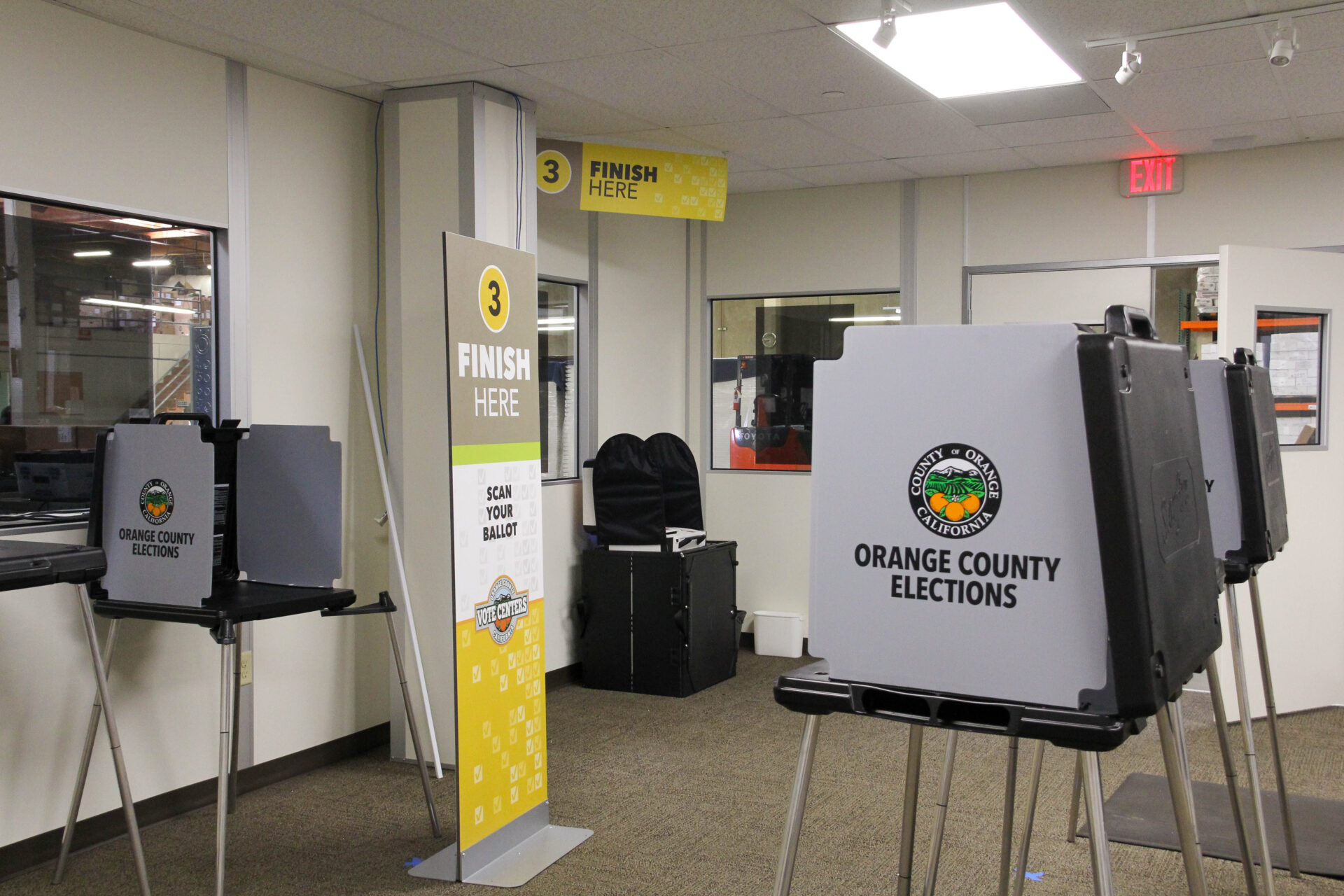The U.S. Department of Justice (DOJ) filed a lawsuit against Orange County Registrar of Voters Bob Page on June 25, 2025, alleging federal election-law violations. The lawsuit also calls for access to unredacted documents involving removals of registrants for non-citizenship. The case cites the National Voter Registration Act (NVRA) and the Help America Vote Act (HAVA), and alleges the county failed to provide the department the information it was seeking and failed to maintain a correct voter roll. The trial date for the lawsuit has been set for March 31, 2026 by U.S. District Judge David O. Carter.
The County alleges it has released some data already, but did not release sensitive personal identifiers because of protections under California privacy laws. LA Times reporting states that the DOJ’s case does not allege non-citizens actually voted in Orange County. Instead, the argument is based upon non-citizen removal cases and whether the federal code gives the federal government the authority to request personally identifiable information (PII), such as partial Social Security numbers and partial driver’s license numbers, and at what points those requests breach areas of contradiction for state confidentiality protections.
The issue goes beyond a procedural battle over documents. Since 2020, Orange County has purged 17 registrants for non-citizenship, either when reported by the individuals or through verification by the district attorney’s office. LAist provides a data point in the midst of a nationwide debate over eligibility to vote and list maintenance.
Emails seen by Democracy Docket reveal that county prosecutors made an offer for a course towards cooperation just before the DOJ sued, involving a system for safeguarding secret information alongside a resolution of federal questions. The DOJ went to court after refusing that offer, based on the outlet’s examination of letters.
The location of Orange County highlights the legal limits it has in releasing personally identifiable information. County authorities explain that they need to balance disclosure and the State of California’s confidentiality provisions and data protection requirements.
County Counsel Leon Page said that “[The Federal Government] hadn’t produced a subpoena or identified a substantive legal authority” for disclosing sensitive identifiers and that the county “offered to draft a ‘confidentiality agreement that would limit disclosure to a governmental purpose.” The line between federal supervision and State privacy legislation is the central legal and policy issue in this case.
While those suits focus on Orange County, the DOJ has also sent similar requests for other large jurisdictions in California, including San Francisco and Los Angeles counties, as part of a broader initiative by the DOJ to obtain data about non-citizen removals. Those requests also include personal identifiers and voter history fields. As a result, the state and local governments have requested definitions of legal authority and protections for confidentiality.
The HAVA and the NVRA are frequently invoked together in litigation involving the accuracy and transparency of voter rolls. The HAVA, passed in 2002, mandates states to develop centralized, statewide systems for registering voters and preserving their accuracy. The NVRA, enacted in 1993, contains provisions regarding list maintenance and public disclosure of some records. These summaries provide legal context but don’t resolve how much PII local jurisdictions must share with federal officials during oversight disputes.
However, where the statutes intersect state protections for privacy is not always clear, and the courts have come out differently based on the record of whether personal information is involved. The Page case is set to challenge those limits through a detailed factual record and California’s rules of confidentiality.
The immediate timeline is still ongoing. In the Clearinghouse case summary and judicial documents, the case was filed in late June and was assigned to the Central District of California. Next steps would include initial case management, a response or answer from the defendant and potential motion practice over the scope of records and protocols. Resolution would be in the form of negotiated access under court-sanctioned protections or a judicial order outlining what federal statute demands.
Whether the parties select a protective order in the long run or adjudicate to a merits decision will determine whether and to what degree unredacted PII is shared in this case and perhaps set the response of the other California districts to similar DOJ requests.
Hahmjun Yohan Do is a News Intern for the summer 2025 quarter. He can be reached at hahmjund@uci.edu.
Edited by Mariam Farag and Joshua Gonzales



